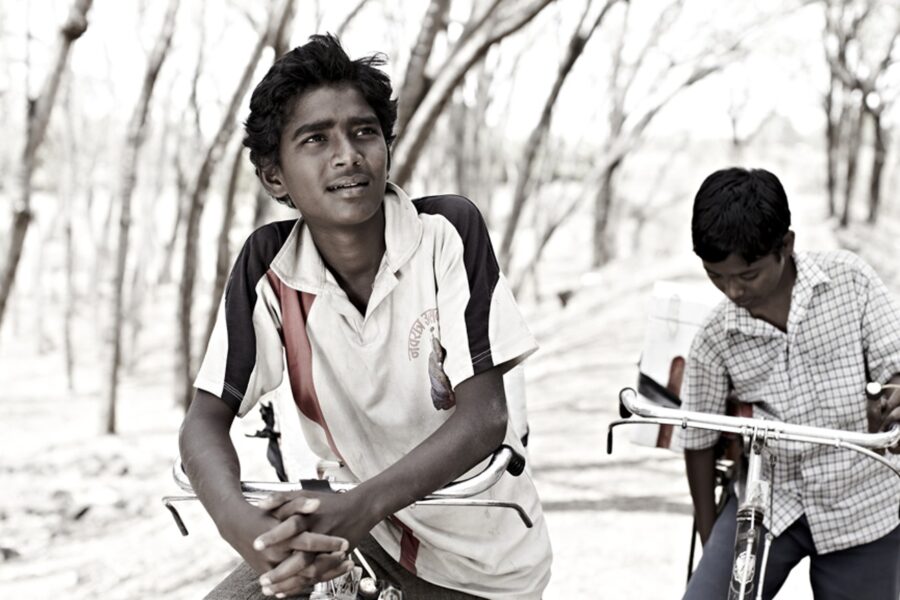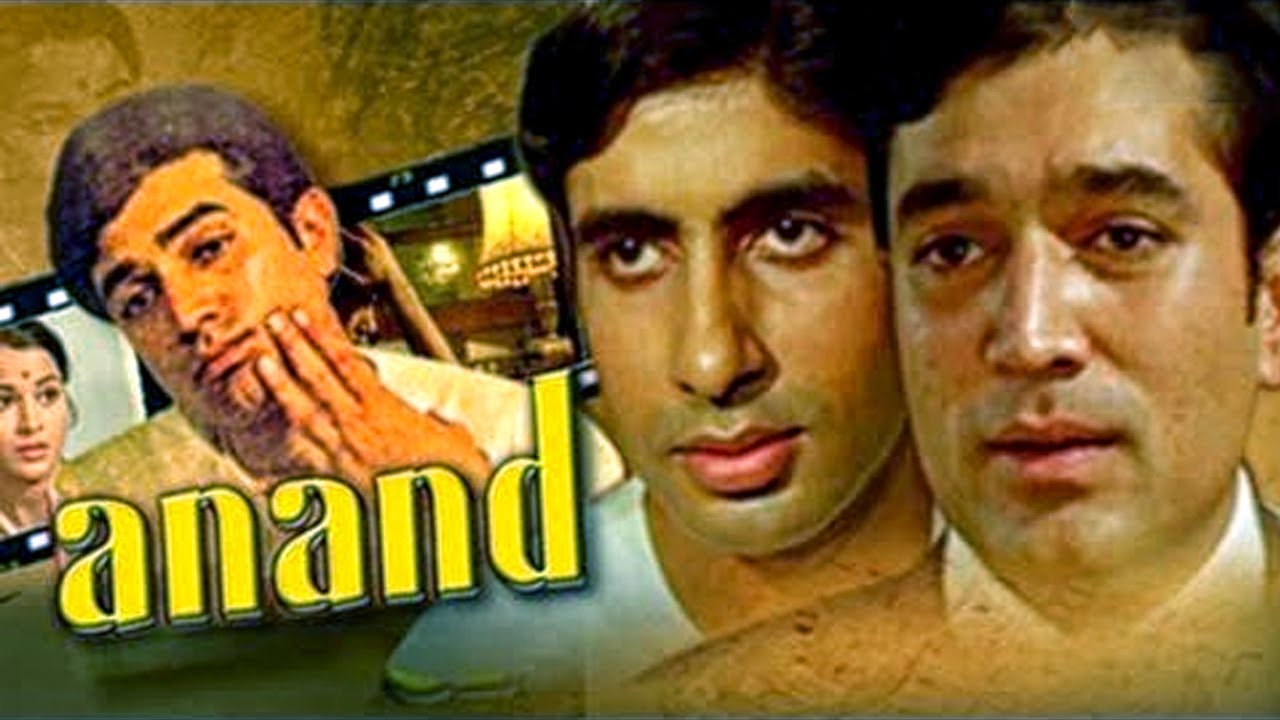At what point in history did man think of enslaving another man? At what point in human history did the suffering of a man become a matter of joy for another man? Several theories have explained this. But liberation? These theories have never been fully able to explain the dynamics of the liberation of a human mind. It is poetry in which we find the answers to these questions. Why, where most theories fail does poetry succeeds? Perhaps, because it is the only act of the human mind that elevates our feelings and ability to reason at the same time.
Fandry is a Marathi film, directed by Nagraj Manjule, who is also a distinguished poet. The film was a sensation, well-received by audiences as well as critics when it released in 2014 in India, after receiving applause across the globe, in 2013. Today, Fandry is hailed as a benchmark in Marathi cinema. In fact, the Marathi cinema I grew up watching seems so immature, compared to Fandry. What makes this movie so distinguished? Each frame is poetic, each emotion in it reflects the poetry of life.
The movie is the story of Jabya’s (Jambuwant Kacharu Mane) pursuit of knowledge, love, and his dream. Belonging to the Kaikadi (ex-untouchable) caste, Jabya stays with his family in the fringe of a village. Despite the hardships his family faces, the struggles to meet ends, working at a construction site, weaving baskets, catching pigs, Jabya is eager to attend school, partly to see Shalu, a girl from a dominant caste.
But he is very cautious of the society he lives in. So here is Jabya, sitting in school. Out of the window from the classroom, he sees his mother and sister collecting wood to use as fuel for cooking. He looks at them and feels insecure and ashamed. But in the next moment, he glances furtively at Shalu, who sits a few benches ahead of him in his side row; he feels innocently rejuvenated; he blushes. In what society is a son is made to feel ashamed of his mother and sister who are Dalits, and made to forget his harsh life in an infatuation towards a dominant-caste girl? The answer lies in the subtext of this scene: mother-sister= humiliation, insecurity, shame; savarana woman= rejuvenation, aspiration, desire. If someone argues that at his age, love has no boundaries and sees no caste while desiring someone, then another haunting question arises. Where does the feeling of shame towards his hard-working sister and mother come into him, as he sees them in the school premises? This is the dilemma of a Dalit man in a caste society. He is made to hate everything which is his. He is made to aspire for things and ideas, constructed for him by brahmins. He is an inevitable part of this dilemma, this abnormal condition. While being a part of this abnormalcy, he also desires to live his dreams at the fullest.
Jabya does his homework on time, despite the fact that he has to bunk a few classes to work alongside his family, and has no lights in his home. His handwriting is elegant, his thought process is poetic when he writes a letter to Shalu. Jabya is a dreamer. But the caste society is a formidable force, as it forces him to do his caste-work, to catch pigs, which he rejects. Therefore, at least in his dream, he must be consoled. This is the law of nature. You must find consolation in order to desire, and have which you can not have in real life. Here, a black sparrow comes into his life. Chankya, the owner of a cycle repair shop whose wife left him and now empathises with Jabya for his ‘love’ for Shalu, tells Jabya that if he catches a black sparrow, burns her and throws her ashes on Shalu, then Shalu will become his. This is a myth; but it is the only way to break the boundaries of caste between Jabya and Shalu. If a Dalit man follows the myth, his wishes will be fulfilled; his wishes, fundamentally defined by caste society. In pursuit of myth, his own reality is compromised and made secondary.
Jabya lives a dual life; one real, surrounded by the abnormalcy of caste; another surreal, in which he is free, loving, and being loved, and in which his dream is seemingly possible. From time to time, his surreal life is interrupted by his real life.
During the yearly religious procession (Jatra) in the village, Jabya dresses in new clothes, and is happy that he gets to see Shalu in it. He and his friend Pirya (also Dalit), enthusiastically participate in the dance alongside people of all castes, partly to impress Shalu who is looking at the dancers from the top of a nearby building. Jabya is thrilled to see her. Chankya also starts dancing with the crowd, lifts Jabya on his shoulder so that Jabya can have a clear glimpse of Shalu. At that moment, he is living a free life, celebrating it. But then his father, Kacharu, calls him and makes him carry the gasoline light on his head, to provide light to the procession. At this moment, from celebrating life, he is pushed to darkness, ironically by the act of carrying the light on his head. The gasoline light is a metaphor for the ‘burden of the society’ on a Dalit man. Light is there, but not for him. He cries, and he hates himself. The rage is being slowly built in his mind.
By the end of the procession, a pig (the ‘Fandry’) passes by the religious chariot, and the chariot falls. It is considered inauspicious. Jabya’s father is summoned by the Patil of the villages and ordered to take care (kill) of the pig at the earliest. Being old and having trouble with his knees, his father is unable to catch the pig himself. So he pushes all of his family, including Jabya to catch the pig the next morning. Jabya is ashamed to catch it as it is just next to his school where he would expose himself doing this job, considered as ‘dirty’ and ‘polluting’ by the villagers. Yet, his father’s temper makes him participate in it. Then he thinks of Shalu, he sees her and he looks for a place to hide. He can not afford to appear doing this ‘dirty’ job in front of her. He keeps on hiding and at one moment, he sees a black sparrow, his dream, hanging on to a wall. He cautiously moves his hand to catch a stone, but then his father hastily appears. Seeing him idle, he beats Jabya in front of all the village, gathered to see his entire family catching the pig, and making fun of this.
Somehow, the pig is caught, tied to a wooden pole, and is being carried outside the village. But on the way, his mother and sisters are teased by upper caste men of the village. They mock Jabya and his family. They even despise his family for the ‘smell’ they have. Jabya loses his mind. Relentlessly, he starts pelting stones at the upper caste men. One of them is injured and comes back to retaliate. Being unable to face constant humiliation, instead of backing off, Jabya determines to carry a bigger stone, and with all energy in his body, he throws at an upper-caste man who comes towards him to retaliate. The stone fills the entire screen and everything becomes black. Silent. This is the climax.
Many critics consider this as a stone, thrown at the caste system. True, but Fandry is not only about assertion. It is also the journey of a Dalit boy towards his dream and aspirations, which is made impossible by society. Fandry is also a normal, beautiful dream begotten in this abnormal, ugly society of castes. And Jabya is not a protagonist only when he pelts stones at upper-caste men. Jabya lives a life before pelting the stone, and Jabya will definitely have a life after asserting against caste-goons. Jabya dreams, smiles, writes, works, studies, loves, and stands up for himself. The violent reaction which is the climax of the movie is a metaphor, a prerequisite for his liberation in a caste society. If we assume this scene of assertion as the only purpose of a Dalit man, then we will make the mistake of reducing him to be a mere stand-in for assertion. Look at Jabya, at least in four scenes/frames he is shown with pen and letter, amidst words, writing his mind, writing about love, perhaps thinking of poetry. If we forget the Jabya who writes Shalu a graceful love letter that is never delivered, then we will end up seeing only one aspect of the story.
Fandry is poetry; we will need time to understand it; because in the truest sense, it is a requiem for life which we have long ago ceased to live, share, and appreciate.



